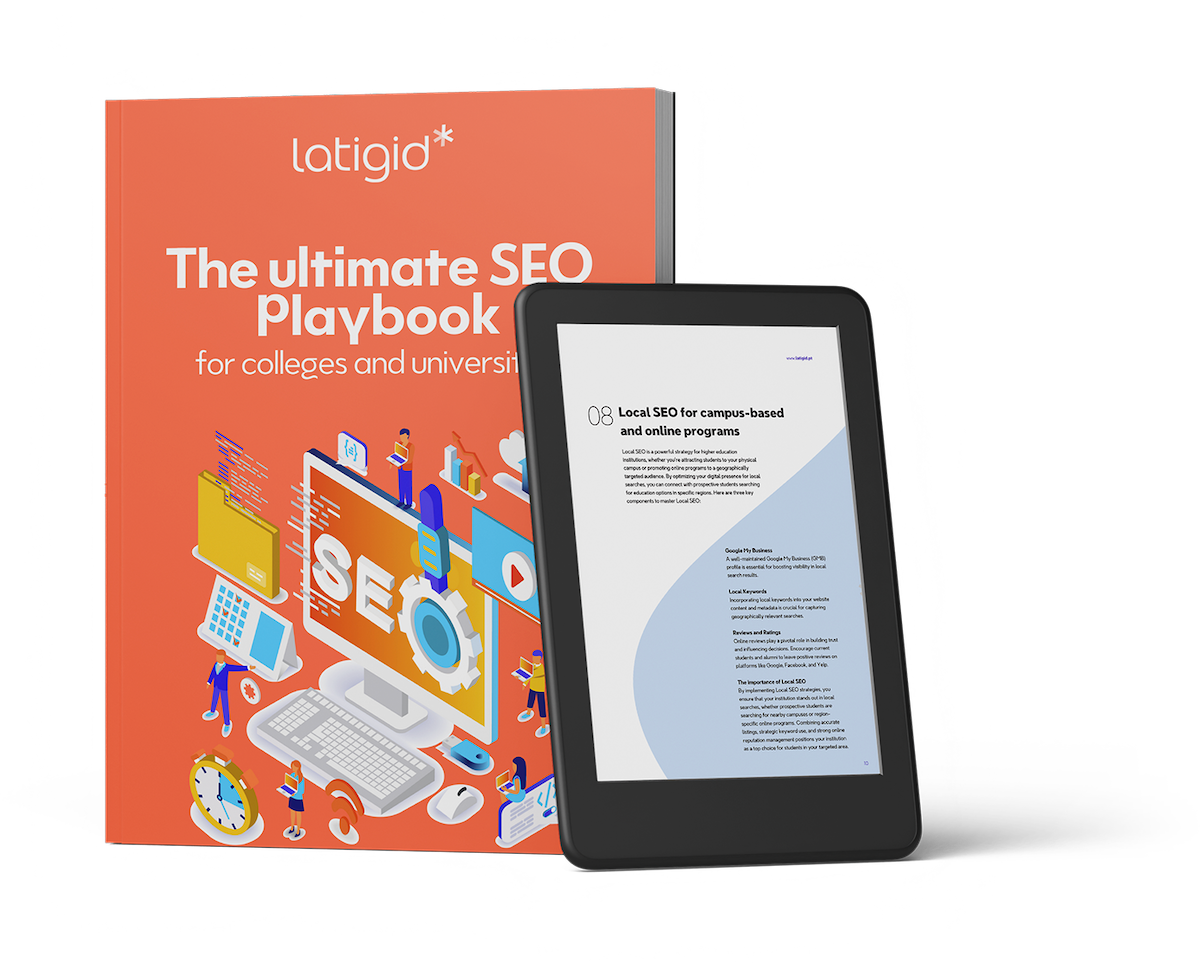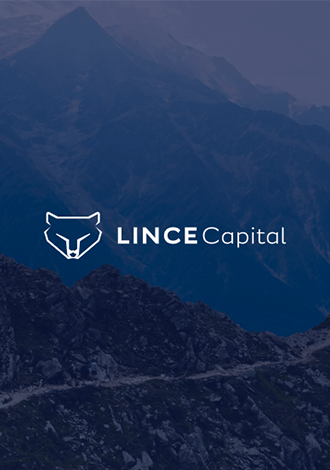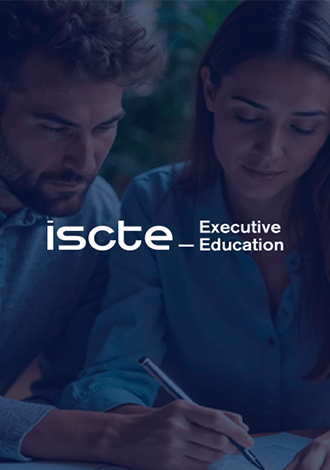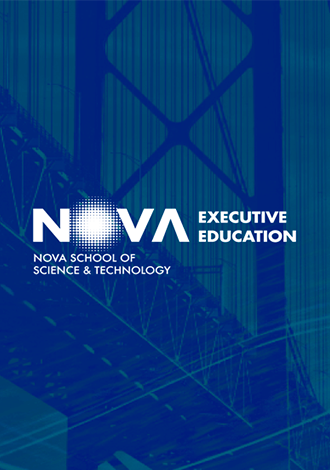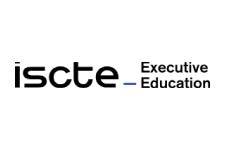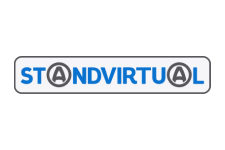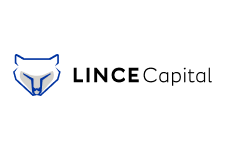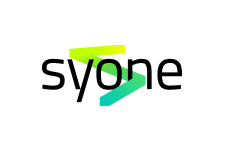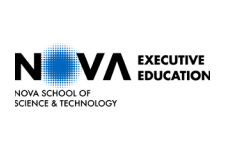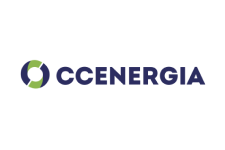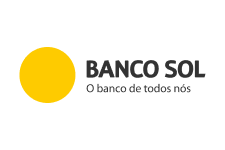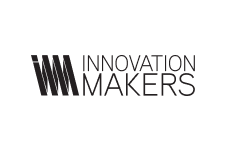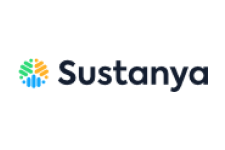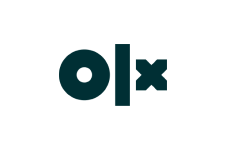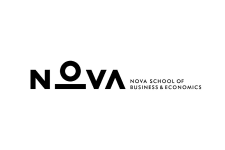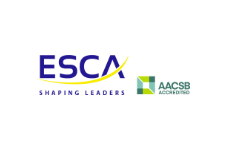What is SEO?
SEO (Search Engine Optimization) is the process of optimizing a website for search engines with the goal of improving its ranking in organic results. Each time a user conducts a search, search engines use algorithms to select and organize results based on their relevance to the query, displaying a list of pages that they believe best meet the user’s intent.
Main types of SEO

- On-page SEO: Includes all optimizations made directly on the website's pages, such as keyword selection, meta tag optimization, content structure, and the use of headings and subheadings.
- Off-page SEO: Refers to practices that occur outside the website but impact its ranking. Backlinks, or links from other relevant sites, and social media mentions are good examples of off-page SEO.
- Technical SEO: Focuses on the technical aspects of the site that affect its performance in search engines, such as loading speed, URL structure, sitemap implementation, and site security.
- Local SEO: Optimization aimed at ensuring the website appears in local searches, especially useful for institutions or programs that serve specific geographic areas.
How does SEO work?
To understand how SEO works, it’s essential to know how search engines, like Google, operate. Whenever a search is conducted, Google uses sophisticated algorithms to evaluate and determine the relevance of a web page to the user’s search. Although the exact formula is proprietary, several factors directly influence a page's ranking:
- Keywords: These are the terms or phrases users enter into search engines. Choosing the right keywords and using them strategically in your content is essential to ensure your site appears in relevant searches.
- Content quality: Google prioritizes content that is relevant and valuable to users. Well-structured, informative content that meets the user’s search intent is highly valued by search engines.
- Backlinks: These are links from other websites that point to yours. The quantity and, more importantly, the quality of these links significantly influence your site’s authority in Google’s eyes.
- User experience (UX): Google also analyzes how users interact with your website. Whether visitors stay on your site, explore multiple pages, or leave quickly are signals that directly affect your ranking.
- Mobile-first: Currently, Google prioritizes websites optimized for mobile devices. With the increase in smartphone and tablet use, it’s crucial for your site to be responsive and provide an excellent experience on any device.

Each of these factors contributes to your website’s ranking in search engines, meaning that a combination of well-executed SEO strategies can organically and sustainably move your website to the top positions. This approach not only increases visibility but also helps attract the most relevant audience to your higher education institution.
The importance of SEO in a digital marketing strategy
SEO plays a fundamental role in any successful digital marketing strategy. Regardless of the size of your institution or the sector in which you operate, appearing at the top of search engine results is crucial for reaching new students and strengthening your presence in the market. Below, we highlight the main reasons why SEO consulting is a key component in digital marketing for higher education.

1. Increase in organic traffic
One of the main benefits of SEO is its ability to attract organic traffic to your website. This type of traffic consists of users who find your site naturally, without the need for paid ads. When your site ranks well in search results, the number of visits increases significantly, continuously generating potential students and leads for your institution.
2. Generate qualified leads
When well-implemented, SEO not only attracts more visitors but also ensures they are users with a strong interest in your programs or services. This is achieved by carefully selecting relevant keywords that match the search intentions of your target audience. As a result, users who arrive at your site through a search are more likely to be in an advanced stage of the decision-making process, ready to become qualified leads.
3. Building credibility and trust
Appearing in the top positions on search engines gives your institution greater credibility. Studies show that users tend to trust organizations that appear at the top more than those found on later pages. A strong SEO strategy helps build this trust by associating your brand with relevant, high-quality content.
4. Improving user experience
In addition to optimizing your website for search engines, SEO also enhances the experience for users visiting your site. Responsive design, fast loading times, and intuitive navigation are factors that not only contribute to a better ranking on Google but also encourage users to stay longer and engage with your content.
5. SEO is sustainable in the long term
Unlike paid advertising campaigns, which yield results only as long as there’s ongoing investment, SEO is a long-term investment. A well-optimized website can continue to attract traffic and generate leads for months or even years without continuous spending. Moreover, as your authority grows, your results tend to improve even further over time.
The role of artificial intelligence in SEO
Artificial intelligence (AI) is having an increasing impact on SEO and promises to redefine how search engines interpret and rank content. Google, for instance, has implemented AI algorithms like RankBrain and BERT, which help improve the understanding of natural language and user search intent.
How AI is transforming SEO

1. AI-Driven keyword research
Keyword research remains the foundation of any effective SEO strategy, but AI tools take this process to the next level. Traditionally, keyword research involved finding terms with high search volumes and low competition, but AI enables a more precise and in-depth analysis:
- Search intent analysis: AI tools like SEMrush and Ahrefs can analyze the intent behind keywords, helping identify terms that best match user needs. With AI, institutions can quickly adapt to shifts in student preferences and search behaviors. This analysis enables an SEO agency to create content that is better aligned with what the target audience is truly looking for.
- Trend forecasting: AI can analyze historical data to predict upcoming keyword trends, allowing institutions to stay one step ahead of the competition by creating relevant content before a term gains popularity.
- Segmentation and personalization: By analyzing large volumes of data, AI tools can segment keywords based on specific criteria, such as location, consumption preferences, and even demographic characteristics. This enables more precise targeting and a highly personalized keyword strategy, aligning content with the unique needs of prospective students and other audiences.
2. AI-Based content creation and optimization
Creating high-quality content that meets user expectations and search engine requirements is essential for a strong SEO strategy. AI can support this task in various ways:
- Relevant topic suggestions: AI tools can suggest related topics and complementary keywords to include in content to improve its relevance. For example, tools like MarketMuse use AI to analyze similar content and identify themes that can enhance user experience and page performance on search engines. This type of analysis is especially useful for an SEO agency looking to optimize content in real time.
- Real-time content optimization: Some AI platforms can assess content quality as it's being written, suggesting real-time adjustments to improve readability, keyword usage, and topic structure. This process makes it easier to align content with search engine algorithm parameters.
- Semantic analysis for relevant context: Using advanced AI algorithms, tools can understand not just the keyword but its context. This means content can be optimized to address multiple related queries under the same topic, resulting in a more comprehensive and complete keyword strategy.
3. Technical SEO automation
AI also plays a crucial role in technical SEO optimization, ensuring that the website meets all requirements for good search engine rankings. This technical aspect is often challenging, but AI helps make the process more manageable:
- Identification and resolution of technical issues: AI tools can automatically detect technical issues, from broken links to sitemap optimization and URL structure improvements. With this automation, technical errors are quickly identified and fixed, preventing the site from being penalized. This technology allows an SEO agency to swiftly address technical issues, avoiding search engine penalties.
- Speed and UX optimization: AI identifies areas for improvement in site speed and user experience. These factors are essential for SEO, as Google favors sites that provide a positive user experience.
- Automation of meta tags and URL structures: AI tools can generate optimized meta tags and suggest improvements to URL structures, helping the site achieve a more organized presence and enabling easier indexing by search engines.
4. Performance analysis and monitoring with AI
SEO requires constant analysis of content and keyword performance, and AI simplifies real-time monitoring and data analysis:
- Advanced data analysis: AI algorithms make it possible to monitor keyword performance and identify which terms drive the most traffic and conversions. This allows for quick adjustments in keyword strategy, maximizing the return on SEO efforts.
- Competitor analysis: AI can also analyze competitor performance, identifying their most successful keywords and areas where there is an opportunity for differentiation. Tools like SpyFu and Moz use AI to monitor competitor performance and uncover gaps in their SEO strategy.
- Custom reports and actionable insights: AI enables the creation of detailed, customized reports on SEO performance, providing actionable insights for marketing teams to make continuous improvements. This analysis also helps identify new opportunities to expand content reach and visibility.
5. User experience personalization
With AI, it’s possible to create a more personalized user experience, which improves retention and increases conversion chances:
- Personalized content based on data: AI enables content personalization based on user behavior. For example, tools like HubSpot and Dynamic Yield can present content tailored to each user’s interests and browsing history.
- Dynamic keyword segmentation: AI helps automatically segment keywords based on factors like location and user behavior, enabling a more targeted and effective approach.
- Automated chatbots and customer support: AI-powered chatbots can help answer frequently asked questions and guide users through the site, enhancing the experience and reducing bounce rates. These chatbots can also gather valuable data to understand user preferences, which can be used to fine-tune keyword strategy.
The future of AI in SEO

AI will continue to evolve and shape SEO, especially with the rise of voice search and the development of even more advanced algorithms. In the coming years, AI is expected to enable:
- Conversational SEO: With the growth of voice search, SEO will need to adapt to more informal and natural queries, responding to complete questions rather than just isolated keywords.
- Personalized results: AI is advancing to deliver even more personalized results based on browsing history and user preferences. This level of personalization will require institutions to tailor content for greater segmentation.
- Deeper insights with big data: AI will enable the processing of large data volumes more quickly and accurately, providing valuable insights to adjust and optimize SEO strategies in real time.
SEO strategies you should implement
To maximize the benefits of SEO, it’s essential to combine different strategies that together enhance your website’s visibility and performance in search engines. Below, we outline some of the most effective SEO strategies you should implement.
1. Keyword Research
Keyword research is one of the first and most important steps in an SEO strategy. Using tools like Google Keyword Planner or SEMrush allows you to identify the keywords most searched by your target audience. Additionally, focusing on long-tail keywords (more specific and detailed terms) can help reach a more qualified audience and reduce competition.
2. Content optimization
Content is the backbone of any SEO strategy. For your website to be relevant to search engines, it’s essential that the content is original, valuable, and optimized for relevant keywords. Additionally, it should include clear titles, compelling meta descriptions, and subheadings that enhance readability and text organization.
3. Link building
Link building is one of the most effective practices for improving a website’s authority in the eyes of search engines. It involves acquiring backlinks—links from other websites that direct to yours. These links act as votes of confidence, indicating that your content is valuable and relevant. However, the quality of backlinks is more important than quantity. Links from high-authority and relevant websites in your sector are much more valuable than a large number of links from irrelevant or low-quality sites.

There are several strategies for building an effective network of backlinks, such as:
- Guest posting: Writing guest articles for blogs, academic publications, or industry websites in the higher education sector, including links to your institution’s website or specific programs.
- Creating valuable content: Producing high-quality, research-driven content relevant to higher education, such as insights into admissions trends or student success strategies. This encourages other educational sites or academic resources to reference and share your content.
- Partnerships and collaborations: Forming partnerships with other universities, educational organizations, or industry influencers can generate valuable backlinks and increase visibility within the academic community.
While link building is essential, it should be done ethically and naturally. Techniques like purchasing links or using artificial backlink networks can result in penalties from Google, harming your ranking. In higher education, it’s especially important to build trust and credibility, so focusing on authentic, high-quality links is key to long-term SEO success.
Technical SEO

Technical SEO is a crucial part of optimizing any website and relates to its infrastructure and performance. This type of SEO focuses on how search engines index and interpret your site, ensuring that your content is easily accessible and understood. Some of the most important aspects to consider in technical SEO include:
1. Site speed
Website loading speed is an important factor in SEO ranking. A slow site results in a poor user experience and increases the bounce rate, which search engines penalize. Improving site speed involves techniques such as image compression, using content delivery networks (CDNs), and removing unnecessary files that slow down loading times.
2. Security (HTTPS)
Website security is an increasingly important factor for Google. Sites using HTTPS instead of HTTP are favored in search results, as they offer greater protection for user data. If your site is not yet secured with an SSL certificate, this should be an immediate priority.
3. Mobile-first indexing
With the increase in searches conducted on mobile devices, Google has adopted a mobile-first approach to indexing websites. This means that the mobile version of your site is the first to be analyzed by Google when determining its ranking. Therefore, it is vital for your site to be responsive and provide an excellent browsing experience across all devices, regardless of screen size.
4. Sitemaps and site architecture
A sitemap is a file that lists all the important pages of your website, helping search engines efficiently index your content. Additionally, your site’s structure should be clear and organized, with a logical hierarchy and internal links that facilitate navigation for both users and search engines.
5. 404 Errors and redirects
404 error pages or broken links can harm user experience and your SEO performance. Ensure your site has no pages that return errors, and use 301 redirects to guide users to the correct page when a URL is changed or removed.
Why you should work with an SEO consultancy

Working with an SEO consultancy is essential for institutions aiming to achieve solid and sustainable results in the digital environment. The expertise and specialized knowledge of a consultancy allow for the development of customized and effective strategies, optimizing the institution’s online presence to attract the right audience.
An SEO agency provides advanced resources to identify opportunities, optimize content, and monitor performance, ensuring that the site stays up-to-date with changes in search engine algorithms. By trusting an agency, institutions can focus on their core mission while ensuring they invest in effective strategies to increase organic traffic, generate qualified leads, and achieve their growth objectives.
The importance of content in SEO strategy

Content is the heart of SEO. Without relevant, high-quality content, all other SEO tactics lose their impact. It’s through content that you communicate with search engines and, more importantly, with users, answering their questions and offering solutions.
1. Relevant and valuable content
For your content to make an impact, it must be useful and address users' questions or needs. Google values content that provides an enriching user experience, with the best content being that which solves problems, teaches something new, or offers a unique perspective on a given topic.
When producing relevant content, remember to focus on the keywords identified in your research. Distribute them naturally throughout the text, but avoid "keyword stuffing," or excessive repetition of keywords, which can harm readability and result in penalties.
2. Content updates
Keeping your content updated is an often-overlooked but highly effective strategy. Older content can lose relevance over time, so it’s important to conduct regular reviews and update outdated information. Doing so signals to Google that your site remains active and relevant, which can improve its ranking in search results.
3. Tipos de conteúdo
SEO isn’t limited to blog articles. There are various content formats that can be optimized for SEO, including:
- Videos: As YouTube is the second-largest search engine, video content can significantly improve the time prospective students or stakeholders spend on your institution’s site.
- Infographics: Visually appealing and easily shareable, infographics increase the likelihood of gaining backlinks from educational sites or industry publications.
- Podcasts: A growing format in higher education, podcasts can be optimized by creating transcripts and incorporating relevant keywords, such as topics related to admissions, academic programs, or campus life.
Diversifying content types on your site helps reach different segments of your target audience, from prospective students to alumni, increasing your institution’s visibility across various search queries.
The future of SEO

SEO is constantly evolving, and to stay competitive, it’s essential to keep up with trends and adjust your strategy as needed. Some key trends shaping the future of SEO include:
1. Voice search SEO
With the rise of voice assistants like Google Assistant, Siri, and Alexa, voice searches are increasing. Voice searches tend to be longer and more conversational, meaning that optimizing for long-tail keywords and creating content that directly answers questions is becoming increasingly important.
2. Artificial intelligence (AI) and SEO
Search engine algorithms are becoming more sophisticated with the introduction of AI, such as Google BERT and RankBrain. These systems are designed to better understand the context and intent behind user searches, making it even more important to create highly relevant, user-focused content.
3. Local SEO
As mobile devices continue to dominate, local SEO is gaining importance. Institutions need to ensure they are optimized to appear in local searches, which includes optimizing profiles on Google My Business and using geographic keywords. This is especially valuable for attracting prospective students and visitors in specific regions.
Conclusion
SEO is an essential component of any digital marketing strategy in higher education, helping to increase online visibility, generate qualified traffic, and build a solid reputation in the academic sector.
Although it is a continuous process that requires dedication, the long-term results make it a valuable investment for universities and colleges.
If you want to improve your institution’s website performance and attract more prospective students, we are here to help. Contact us to discover how we can develop a customized SEO strategy tailored to higher education, ensuring sustainable growth and a strong online presence.











